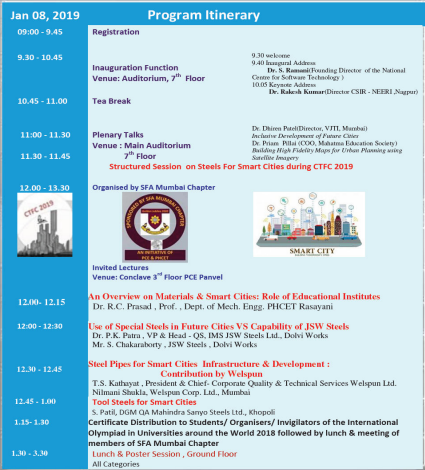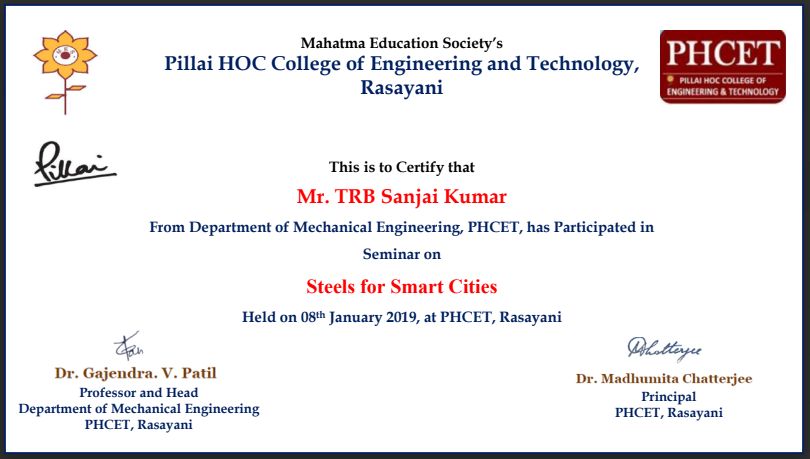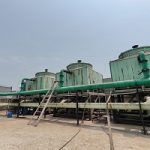PHCET and PCE successfully conducted Workshop on “Steels For Smart Cities” for students and faculty members of PHCET and PCE to cover various aspects and applications of steels used in smart cities.
Resource Person
Coordinator
Department
Dr. S. Ramani (Founding Director of the National Centre for Software Technology)
Dr. Rakesh Kumar (Director CSIR-NEERI, Nagpur)
Dr. Dhiren Patel (Director, VJTI, Mumbai)
Dr. Priam Pillai (COO, Mahatma Education Society)
Dr. R. C. Prasad (Vice Chairman Mumbai SFA Chapter)
Dr. G. V. Patil
Mechanical Engineering
Steel plays a crucial role in the development of smart cities due to its versatile properties and applications.
Steel in Smart Cities:
Infrastructure Backbone: Steel serves as the backbone for the infrastructure of smart cities. It is widely used in the construction of buildings, bridges, and other critical structures due to its strength, durability, and ability to withstand environmental conditions.
High-Rise Construction: Smart cities often feature high-rise buildings with advanced technological integration. Steel’s high strength-to-weight ratio makes it an ideal choice for constructing tall structures, providing stability and flexibility in design.
Smart Grids and Communication Towers: The implementation of smart grids, communication towers, and other connectivity infrastructure relies on steel. Its durability and load-bearing capacity support the installation of antennas, sensors, and communication equipment essential for smart city networks.
Transportation Systems: Steel is extensively used in the construction of transportation systems, including bridges, tunnels, and railway tracks. Its resilience contributes to the safety and longevity of these structures, ensuring efficient and reliable urban mobility.
Smart Materials and Coatings: Innovative steel materials with enhanced properties, such as corrosion resistance and self-healing capabilities, contribute to the development of smart infrastructure. These materials can reduce maintenance costs and increase the lifespan of structures.
Environmental Sustainability: Steel’s recyclability makes it an environmentally sustainable choice for smart cities aiming to minimize their carbon footprint. The use of recycled steel in construction aligns with the sustainability goals of modern urban development.
In summary, steel is a foundational material for smart cities, providing the strength and adaptability needed for modern infrastructure. Its integration supports the development of resilient, technologically advanced, and environmentally sustainable urban environments.









